Politics
Top Pollster Breaks With Industry, Reveals Staggering Inconsistencies In Trump Era: ‘Fingerprint Of Bias’
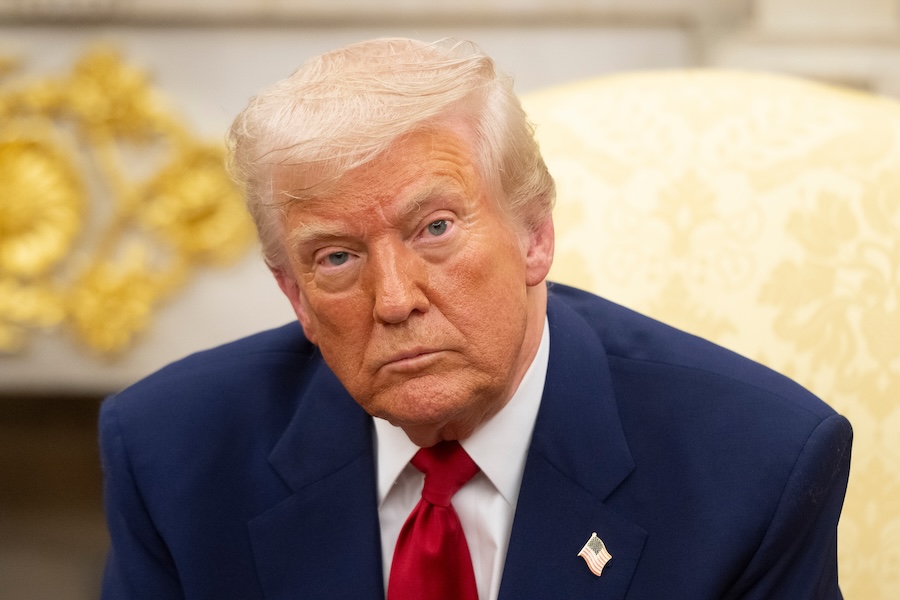
A top pollster is breaking from the political industry’s establishment, revealing what he calls a dangerous collapse in American polling — one that has warped election expectations across the Trump era.
“For the third consecutive election cycle, [polling] has reflected not the electorate as it is, but as the political class wishes it to be,” Jason Corley of Quantus Insights wrote. His new report lays out what he calls a “fingerprint of bias,” showing that since 2016, polls have consistently overestimated Democratic performance by an average of 4.2 points in battleground states.
“These are not isolated misses. They are consistent, directional, and embedded in the structure of how modern polls are conducted,” he said.
Corley points to the pattern: President Donald Trump’s victories in Wisconsin, Michigan, and Pennsylvania in 2016, Joe Biden’s closer-than-expected margins in 2020, and Kamala Harris’s losses in 2024, despite leading in major polls. In Iowa, the gold-standard Des Moines Register had Harris ahead by three points. Trump won the state by thirteen.
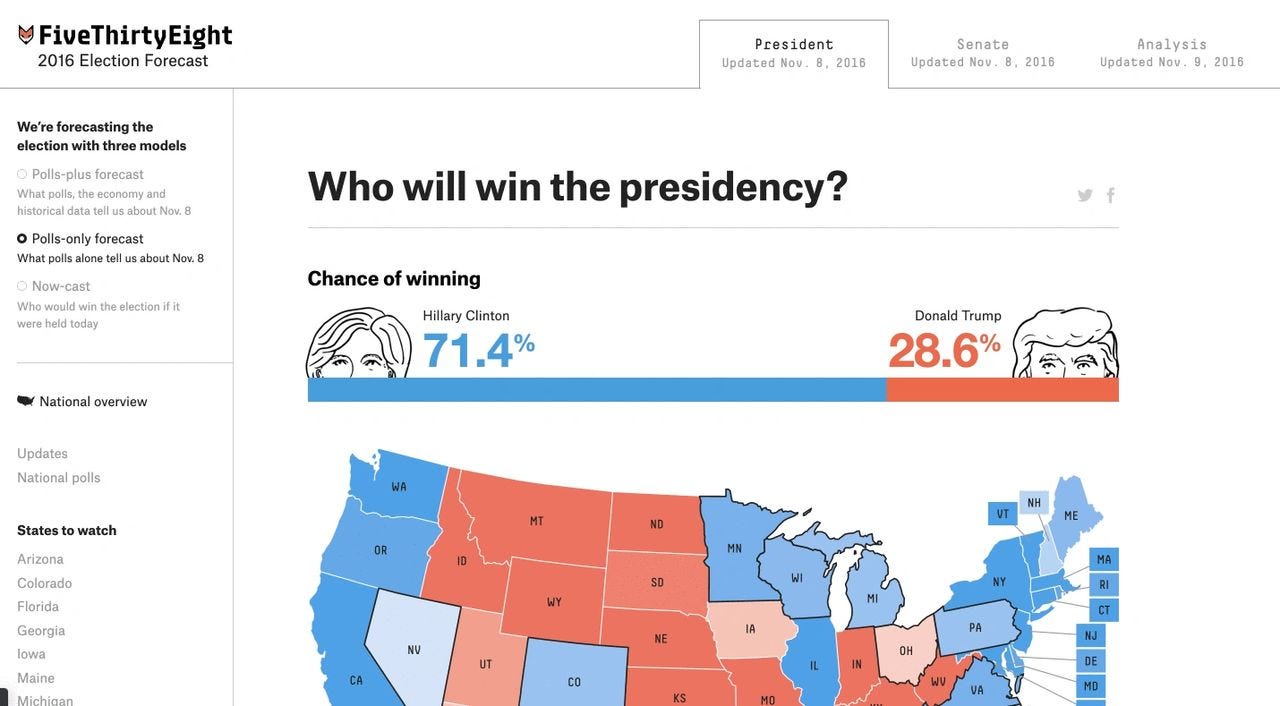
via Quantus Insights
“This isn’t random error. It’s a fingerprint of bias,” Corley said.
The issue isn’t last-minute voter swings. According to Quantus Insights, it’s structural. “Response rates have collapsed—from 20% in 2000 to just 5% in 2024. The Americans still answering surveys are more urban, more educated, and more institutionally trusting than the electorate as a whole.”
Meanwhile, rural, working-class, and conservative voters are either unreachable or refusing to participate. “The result: pollsters continue to model an America that does not exist.”
Quantus argues the damage extends beyond bad numbers. It is “strategic, psychological, and institutional.” Flawed polling signals false narratives, reshaping campaigns, media coverage, and voter behavior. As Corley notes, “When polls signal a clear lead, voter behavior shifts. Supporters of the presumed winner may stay home. Opponents may lose hope.”
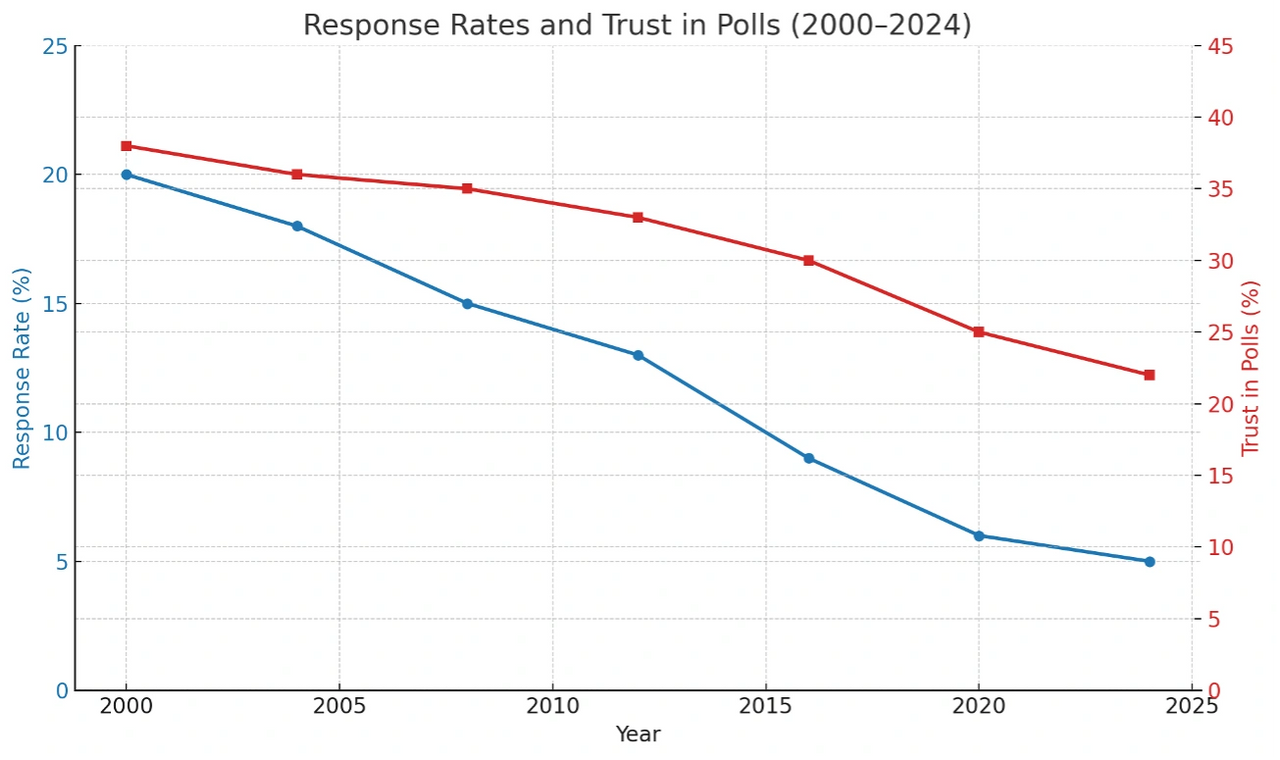
via Quantus Insights
Public confidence in polling has collapsed, with Gallup showing trust falling from 38% in 2000 to just 22% today. Media trust remains at 60%.
Corley says a big reason polling failure persists is the role of aggregators and media influencers. “Forecasts of 70% or 80% ‘win probabilities’ are built on fragile foundations—polls that are themselves skewed, but dressed in graphics and given the sheen of certainty.”
He specifically points to the now-defunct FiveThirtyEight, whose pollster grading system often “elevated firms with poor predictive records while dismissing newer entrants that showed better performance.”
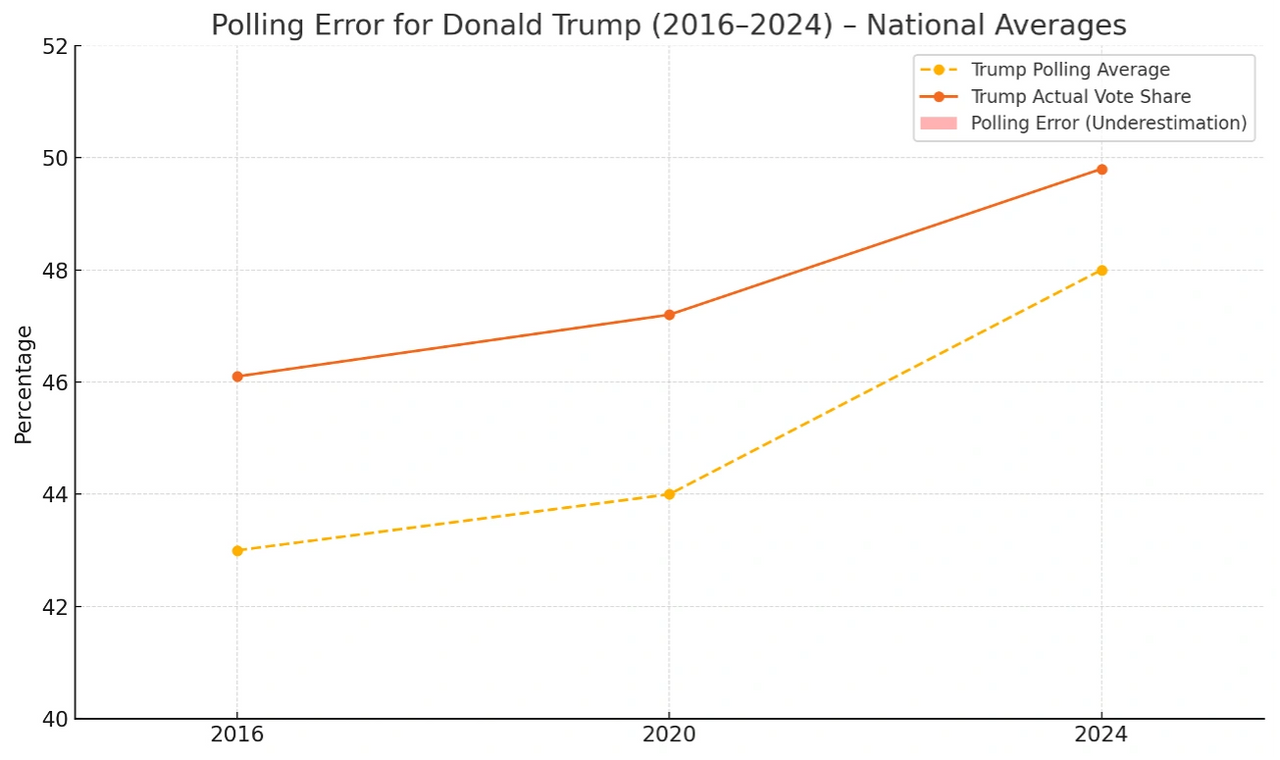
via Quantus Insights
At Quantus, Corley’s team used a different method. Instead of relying heavily on polling, they incorporated behavior models, economic sentiment, turnout simulations, and volatility measures. Polls were used but not given dominant weight.
Their final 2024 forecast gave Trump a 65% probability of winning 312 electoral votes, projecting a national margin of 48.8% to 48.4%. Trump went on to win exactly 312 electoral votes, carrying the national popular vote 49.8% to 48.3%.
“This was not the result of luck. It was the result of method,” Corley said.
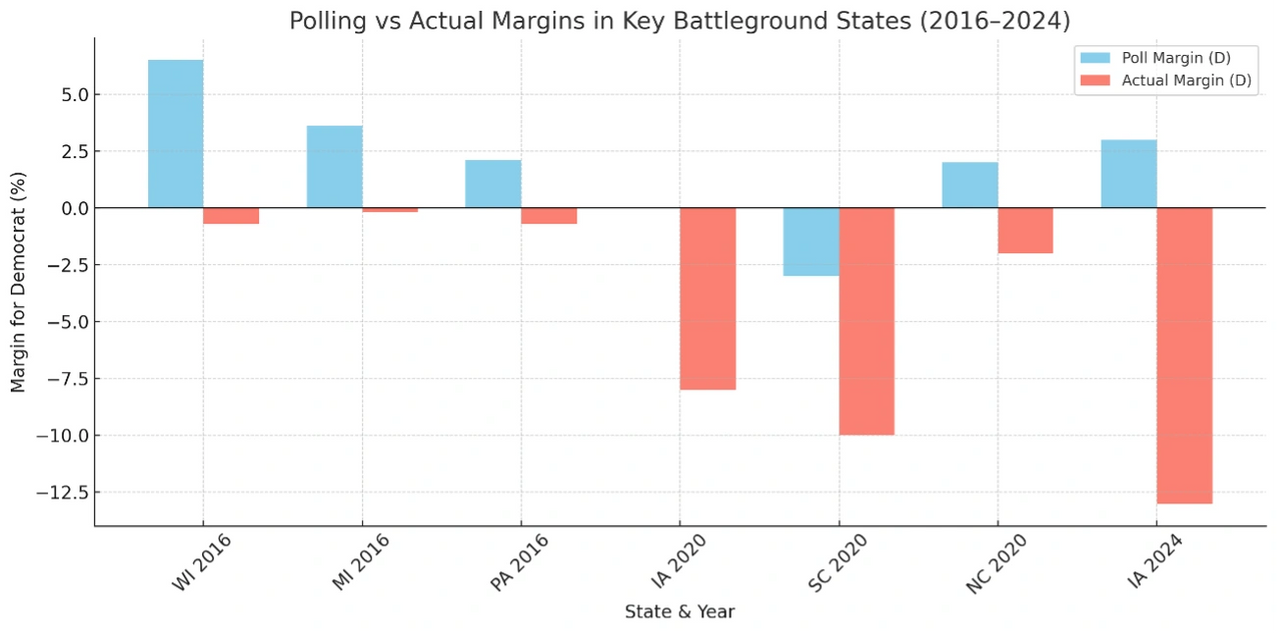
via Quantus Insights
Quantus’s October polling error averaged just 1.0 point across Michigan, Pennsylvania, Wisconsin, and nationally—a sharp contrast to legacy firms like Siena, YouGov, and Morning Consult, which consistently overestimated Democratic strength by 2–3 points.
“Polling is not just a technical tool. It is a civic instrument. If it fails, it does not merely mislead—it misgoverns,” Corley warned. “It distorts strategy, disorients the public, and undermines faith in electoral legitimacy.”
Corley’s message is clear: “Polling should not tell us what we wish to hear. It should help us see the country as it is.”

